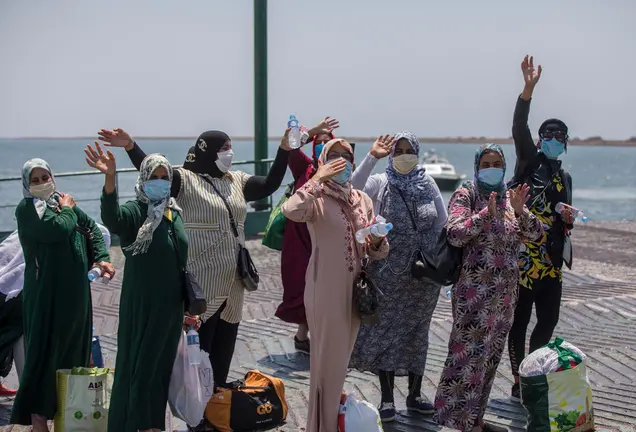The minimum vital income (IMV, in its acronym in Spanish), which the government of Spain presented in the midst of the pandemic as one of its tools against poverty, is not reaching the planned objectives.
A study released on Thursday by the State Association of Directors and Managers of Social Services (Asociacion Estatal de Directoras y Gerentes de Servicios Sociales) shows that three out of four IMV applications have been rejected by the authorities.
Until September 2021, the government received 1.45 million applications for IMV, of which 91% were valid files. Of these, 1.24 million have been processed, but the authorities only approved 337,000 applications (27.1%), that is, little more than one in four. Another 888,000 requests (72.9%) were rejected.
The study, which is based on the latest data from the Ministry of Inclusion, Social Security and Migration, concludes that despite the serious social crisis, the government has not yet used even half of the budget allocated to the IMV for this year.
"In nine months, Social Security has only paid out 1,400 million euros of the 3,000 planned per year," says the association that prepared the study in a press release.
IMV reaches 1.7% of the population
The study emphasizes that only 8.04% of the population (799,203 people) living below the poverty line has benefited from the Minimum Living Income, which is equivalent to 1.7% of the country's population. The association says it is due to the complexity of the application process and the very demanding requirements.
According to the Ministry, 60% of the denials are for not meeting the vulnerability requirement (for exceeding the minimum income and property thresholds).
But the authors of the study argue that when making the decision, officials take into account the income of 2019, a year in which the population had not yet been impacted by the pandemic. And since then, the reality may have changed a lot for many families.
Another 10% were denied for not properly accrediting the coexistence unit, for which the collective historical register is still required. The rest were rejected due to formal defects or lack of documents.











